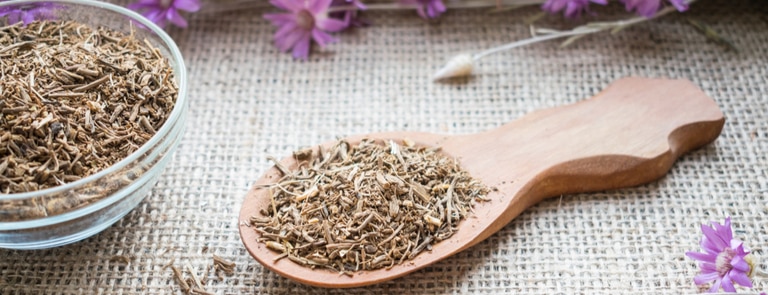15% off €30 or 20% off €40
Code:CHOOSE
Natural sleep remedies: How to get a better night’s sleep

Are you regularly spending your nights tossing and turning? Here’s our guide to natural sleep remedies that could help you get a better night’s rest
Summary
1How much sleep are we getting?
The answer – not as much as you probably think. In a study by The Sleep Council, 12% of people admitted to getting less than five hours a night.
2Popular natural sleep aids
When a lack of sleep starts disrupting your daily life, you may look for natural remedies to help improve your sleep.
3Natural sleep remedies for the whole family
Whatever your age, good sleep hygiene can help everyone to get a better night’s rest9. Here are a few good habits you could incorporate into your...
So, you’re not getting your eight hours kip every night. You’re not alone. Almost three-quarters of people in the UK sleep less than seven hours per night.1
So, if you’re regularly spending your nights tossing and turning, you may be looking for natural sleep remedies to help regulate your slumber patterns.
But before we discuss natural sleep aids, let’s talk about how much kip we’re really getting as a nation.
How much sleep are we getting?
The answer – not as much as you probably think. In a study by The Sleep Council, 12% of people admitted to getting less than five hours a night.
And did you know, where you live could also influence how long you spend in the land of nod?
For example, in the West Midlands 17% of people get seven to eight hours of sleep each night.
But spare a thought for the 30% of people in the North East of the country surviving on a measly five or six hours a night.2 And sleep performance is equally disappointing in the North West, where 30% of people reported sleeping quite poorly each night.3
But more positively, over in the capital, 29% of London respondents to the survey felt they slept well most nights.4
How does this compare to how we used to sleep as a nation? Check out our article on the history of sleep to find out how our sleep has changed over the past 150 years.

One thing is for sure, everyone has an opinion about how much sleep we should get. Around eight hours seems to be the gold standard for a good night’s rest. But what if you’re getting eight hours and still feel exhausted? Or maybe seven hours feels more natural for you? There’s definitely a theory that we should be less concerned about quantity and more focused on sleep quality.
But whatever your slumber goal, a natural sleep aid could support positive changes in your sleep habits.
Sleep help podcast | The Wellness Edit
Popular natural sleep aids
When a lack of sleep starts disrupting your daily life, you may look for natural remedies to help improve your sleep.
Lavender has a soothing reputation5 that’s made it one of the most popular natural remedies for insomnia. Its calming effect can help induce sleep and improve the quality of your snoozing.
This common herbal sleep aid may decrease how long it takes you to fall asleep and can provide relief from sleep disturbances6. This is based on traditional use only.
This herbal sleep inducer is a popular ingredient in night-time teas. This is mainly down to an abundance of an antioxidant called apigenin, which may help encourage sleep7.
Passionflower tea is a popular night-time beverage. This flowering vine is believed to help with insomnia by aiding relaxation and supporting the reduction of anxiety8.
Natural sleep remedies for the whole family
Whatever your age, good sleep hygiene can help everyone to get a better night’s rest9. Here are a few good habits you could incorporate into your daily routine:
- Stick to a consistent sleep and wake time.
- Deal with any anxieties before bedtime to avoid lying awake worrying.
- Keep your bedroom dark, quiet and cool to create a comfortable sleeping environment.
- Incorporate activity into your day.
- Cut down on alcohol and avoid caffeine close to bedtime.
Natural sleep aid for kids
An estimated 25% of school children in the UK aren’t getting enough sleep10. The best natural sleep aid for children is a consistent bedtime routine and good sleep hygiene. Here are a few relaxation ideas:

- Introduce at least one hour of screen-free time before going to sleep.
- A warm bath followed by reading a book or listening to relaxing music is a tried-and-tested wind-down routine.
- Dimming the lights can encourage your child's body to produce the sleep hormone, melatonin. This can help them nod off easier.
Natural sleep remedies for elderly
All of the above advice also applies to older generations. But what about daytime napping? If you feel an afternoon snooze could give you a much-needed energy boost, here are a couple of golden rules.
First, limiting naps to 15-45 minutes can prevent you waking up feeling groggy.
And secondly, if you restrict your dozing to early in the afternoon, it can prevent it disrupting your sleep at night.11
Summary: What is the most effective natural sleep aid?
The best sign of a good night’s sleep is waking up feeling refreshed and energised. So, maybe the best way to decide whether a sleep aid is working for you is to assess how you feel the next day.
One way to do this is to keep a sleep diary. Track any remedies you try, note exercise and lifestyle changes (including reasons for stress) and also record consumption of alcohol, caffeine, and nicotine.
Then, if your attempts to remedy your sleep problems aren’t successful, you can take this information to your doctor for a professional opinion.
- https://sleepcouncil.org.uk/wp-content/uploads/The-Great-British-Bedtime-Report-2017-1.pdf
- As source 1
- As source 1
- As source 1
- https://www.ncbi.nlm.nih.gov/pmc/articles/PMC3612440/
- https://www.ncbi.nlm.nih.gov/pmc/articles/PMC4394901/
- https://www.healthline.com/nutrition/teas-that-help-you-sleep
- https://www.healthline.com/health/food-nutrition/passion-flower-tea
- https://www.nhs.uk/oneyou/every-mind-matters/sleep/
- https://sleepcouncil.org.uk
- https://www.helpguide.org/articles/sleep/how-to-sleep-well-as-you-age.htm



